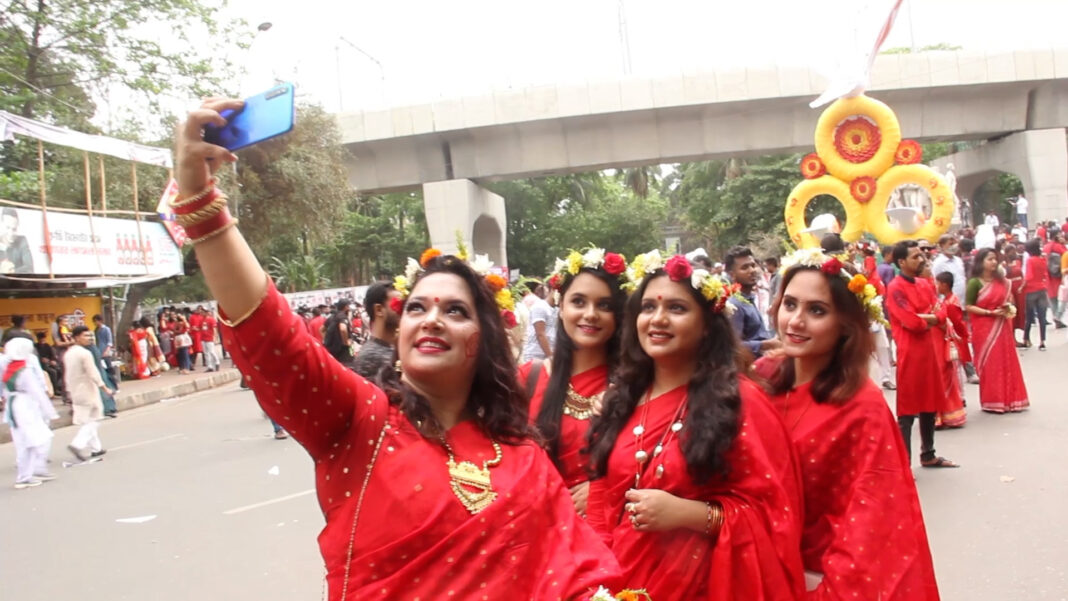DHAKA: After two years of muted celebrations, Bangladeshis on Thursday welcomed the first day of Bengali New Year with splendor, as the coronavirus pandemic eased. In the capital, people dressed in traditional red attire marched and danced in a colorful procession that started from the Art College of Dhaka University.
The parade, called Mangal Shobhajatra, was added to UNESCO’s intangible cultural heritage list in 2016.
Although many of the participants were fasting as the Muslim-majority nation of 160 million people is observing the month of Ramadan, and despite the scorching heat, they joined the celebration — the first major one after a lull of two years.
Faria Alam, a Dhaka University student, said it was a “call from the bottom of the heart.”
“It’s part and parcel of our Bengali ethnicity,” Alam said.
For Nurul Huda, renowned poet, the core of celebration is “building a happy nation with the spirit of harmony and without any disparity.”
“We want to disseminate this message to every corner of the world,” he told Arab News.
“The celebrations of Bengali New Year represent the true secular spirit of the Bengali nation. People from all religions — Muslims, Hindus, Buddhists and Christians — equally participate.”
Nasiruddin Yousuff Bachchu, film and theater director and one of the key figures on the country’s cultural stage, said that the first day of the traditional new year was observed across the country “with much festivity.”
The Bengali New Year parade did not always go smoothly as some groups have opposed the celebrations, calling them un-Islamic.
Thursday’s peaceful processions were guarded by security forces.
“There were some security threats also, as mentioned by the Dhaka Metropolitan Police chief, but finally the celebrations took place in a peaceful way,” Bachchu said.
“Everything went fine, and we proved that here, religion and the festival can go side by side.”
Thursday was a national holiday in Bangladesh. The Bengali calendar emerged under the 16th-century Mughal emperor Akbar, who combined Islamic and solar Hindu calendars to facilitate tax collection.




